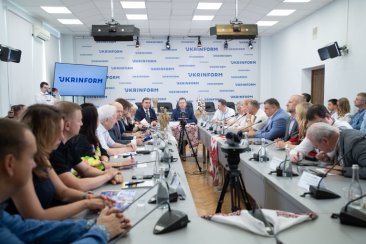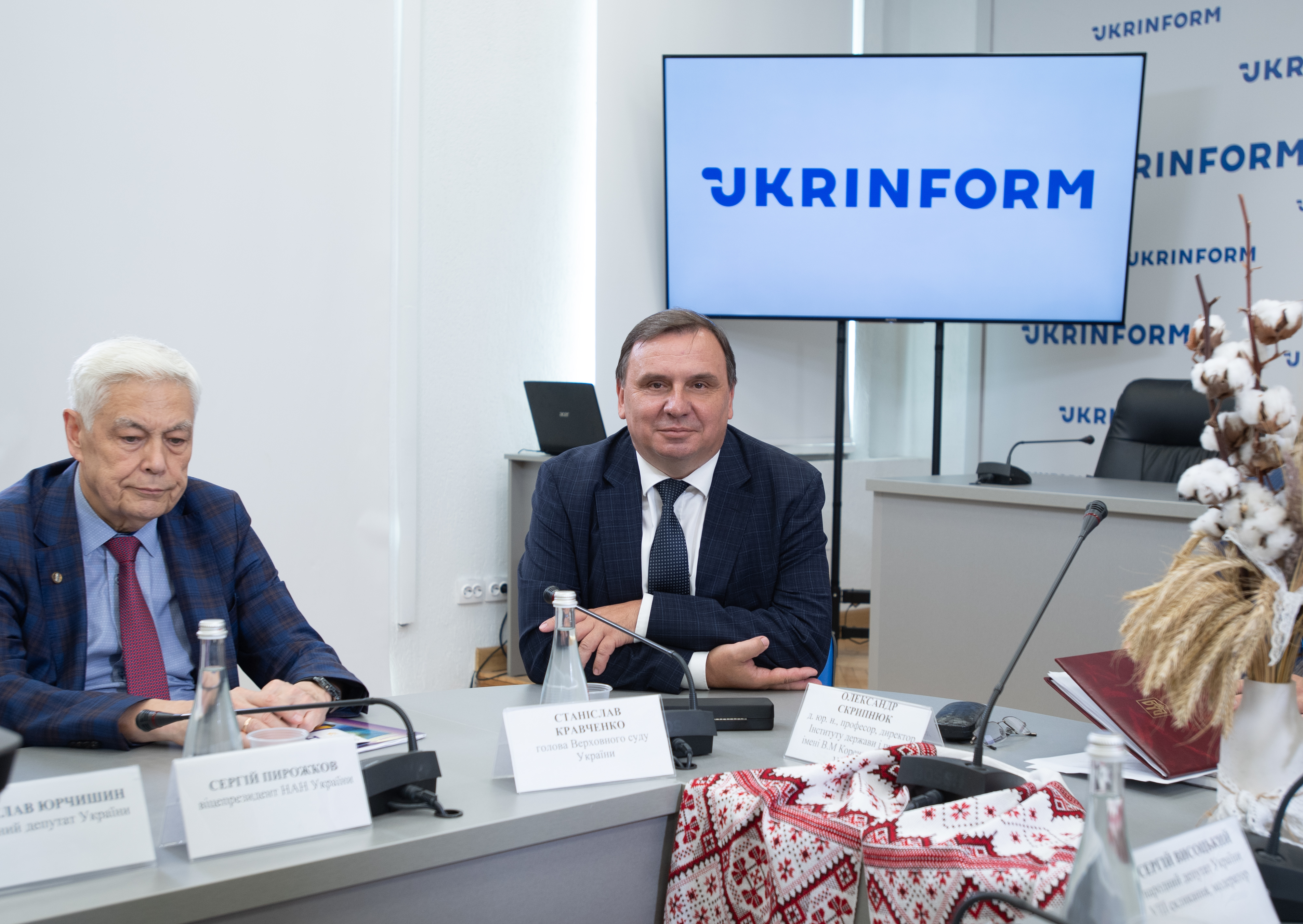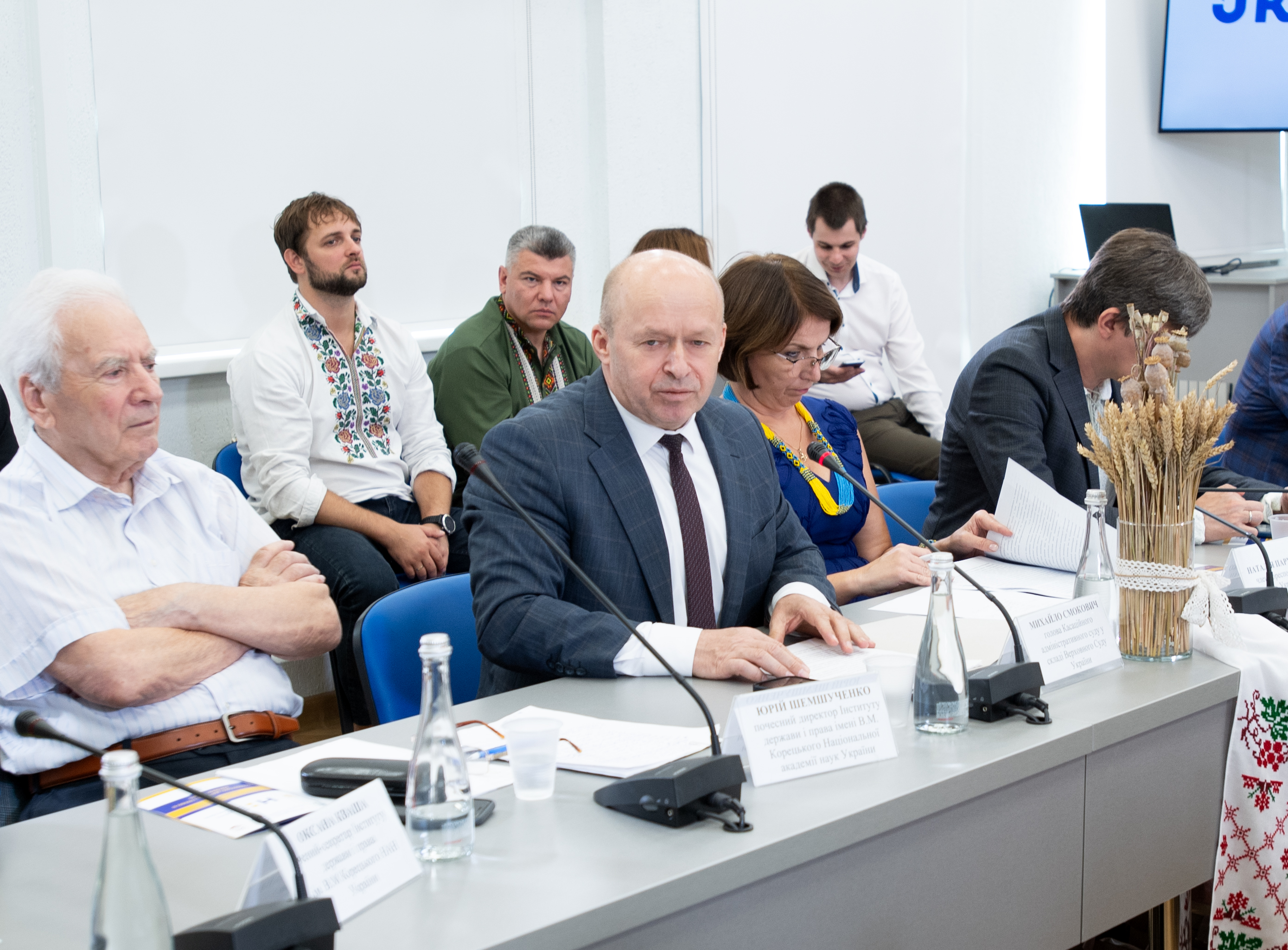Contact center of the Ukrainian Judiciary 044 207-35-46

Since the beginning of Russia's armed aggression in 2014, Ukraine's courts have faced a number of organisational and legal challenges, as the legislation in force at the time had not yet been adapted to the new realities. Since then, new provisions have been actively added to the Criminal Code of Ukraine and the Criminal Procedure Code of Ukraine. In particular, the institute of in absentia was introduced - a special procedure for criminal proceedings in the absence of the accused. Its application is particularly relevant in the current environment.
In addition, the lawmaker has reinforced liability for several criminal offences. This includes crimes committed against national security as well as those under martial law. Furthermore, the Special Part of the Criminal Code of Ukraine has been extended with new articles stipulating liability for collaboration with, and aiding and abetting the aggressor state.
This statement was made by the President of the Supreme Court, Stanislav Kravchenko, at the All-Ukrainian Scientific and Practical Conference entitled "The Ukrainian State and Law in the Time of War".
The President of the Supreme Court also observed that the judicial system encountered increased difficulties with the outbreak of the full-scale war. Some of the courts are located in the temporarily occupied territories, a significant number are in the area of active hostilities, and court buildings in the de-occupied settlements have been looted and lack the appropriate material, technical infrastructure and human resources to resume their work.
As of 28 August 2023, more than 105,000 criminal proceedings on war crimes have been registered during the full-scale invasion of Ukraine by the Russian Federation. The courts ensure consideration of relevant proceedings on the merits, as well as exercising judicial control during pre-trial investigations of such crimes. This type of case is significantly more prevalent than any other.
Stanislav Kravchenko assured that despite all the difficulties, the judicial system exercises its powers at the proper level. According to him, the Supreme Court is cognizant of its mandate to establish a uniform jurisprudence for all of Ukraine's courts and, as a consequence, places significant reliance on the scientific community. For this reason, judges consult with academics, including members of the Supreme Court's Scientific Advisory Council, before making any decision that will have a significant impact on the practice of applying the law.

The courts need the assistance of legal scholars especially when it comes to interpreting substantive law provisions that have long been enshrined in the Criminal Code of Ukraine, but the need for their practical application only arose with the outbreak of the war.
In addition, the President of the Supreme Court also stated that the courts were committed to aligning their practices with those developed by the International Criminal Court, whilst also taking into account the standards for defining terms set out in international conventions.
Mykhailo Smokovych, President of the Administrative Cassation Court of the Supreme Court, spoke about the work of the Supreme Court under martial law. He noted that the war had caused and was still causing many problems in organising the work of the Ukrainian courts. One issue with the judiciary is the decrease in the quantity of judges, leading to a significant procedural burden on each judge.
The speaker informed that during the period of martial law, the Administrative Cassation Court of the Supreme Court received 60,301 cases and materials, and considered 65,645 cases and materials during this period, including the remaining ones. The above figures prove that the Supreme Court is working continuously and very efficiently, even in times of war.
The next aspect concerns procedural matters, including the possibility of rendering judgments online. This issue has become an important one, as the courts are facing the following problems: the rapid occupation of certain areas of Ukraine has resulted in some court cases remaining in the uncontrolled part of the country; some court cases have been destroyed by fire or damaged; some case archives have been destroyed; other cases cannot be transferred to the controlled area; and court cases are not digitised.

In addition, there are difficulties in communicating with the parties to the proceedings, due to the fact that a significant number of people have temporarily or permanently changed their place of residence during the war, as well as difficulties related to the fact that not all parties to the proceedings cooperate with the courts through e-cabinets, and difficulties related to the violation of procedural deadlines.
Mykhailo Smokovych observes that the Administrative Cassation Court of the Supreme Court adheres to the view that the mere introduction of martial law in Ukraine cannot act as an absolute and satisfactory basis for considering valid reasons for failing to meet the procedural deadline. This is particularly true for the public authorities, who must provide adequate justification and evidence of how the imposition of martial law has affected their work.
As regards the conditions for the exercise of the functions and powers of the courts, many court buildings have been damaged and many do not have bomb shelters. For example, in the event of an alarm or missile attack, judges, court staff and parties take refuge in underground metro stations. Despite today's challenges, the Court is doing all it can to ensure human rights in the field of public relations.
The event was organised by the V.M. Koretsky Institute of State and Law of the National Academy of Sciences of Ukraine and the Foundation for Institutional Development of Ukrainian Science.